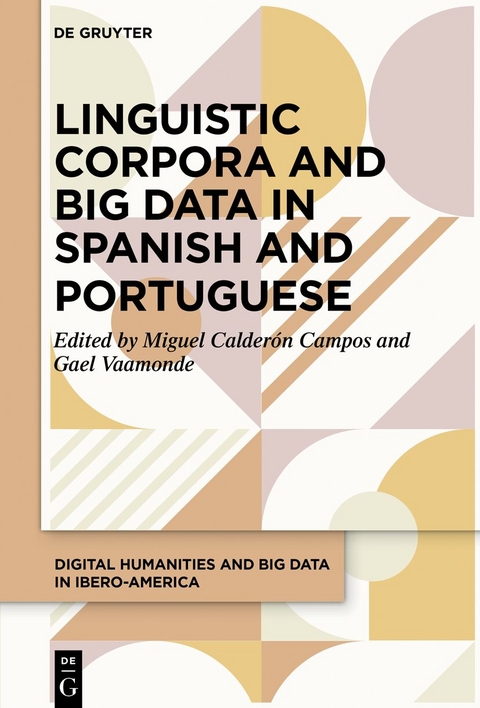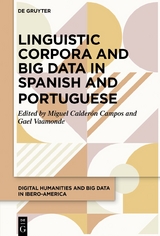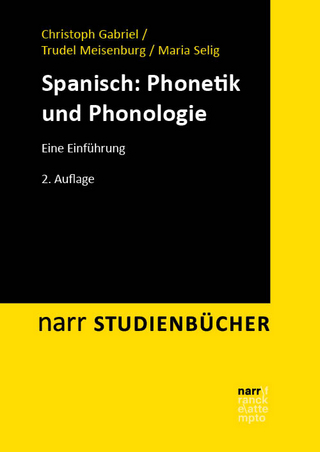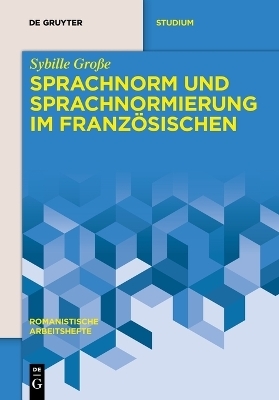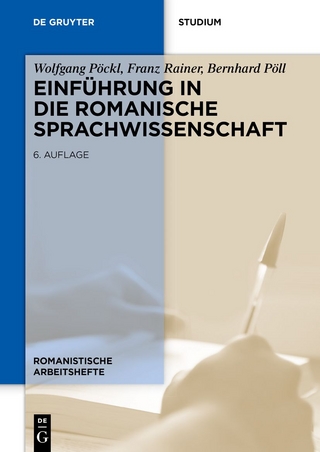Linguistic Corpora and Big Data in Spanish and Portuguese
Seiten
2024
De Gruyter (Verlag)
978-3-11-078145-8 (ISBN)
De Gruyter (Verlag)
978-3-11-078145-8 (ISBN)
La colección presenta trabajos interdisciplinares que combinan herramientas humanistas y digitales para proponer enfoques inéditos sobre Literatura, Lingüística, Teoría Crítica y Filosofía en el espacio iberoamericano del siglo XXI. Sus tres líneas de investigación – corpus digitalizados, lingüística experimental, relación entre Literatura, Crítica y Big Data – trascienden el dataísmo para abrir nuevas perspectivas en las Humanidades Digitales.
In recent decades, corpus linguistics has experienced tremendous development in the Hispanic world, along two opposite but complementary approaches: increase in corpus size (corpus linguistics as Big Data) and improvement in document selection and data annotation (corpus linguistics as High Quality Data). The first approach has led to the creation of massive corpora such as EsTenTen; at the same time, it has promoted the use of the web and social networks as corpora. The second perspective gives rise to specialized corpora such as Post Scriptum or Oralia Diacrónica del español (ODE). The contributions gathered in this volume combine both methods in order to exploit their advantages and to overcome their possible limitations. On the one hand, it addresses the creation and design of small corpora focused on data quality; on the other hand, it offers case studies that make use of both specialized corpora and massive data extracted from the web. Highlighting the complementary nature of both methods is the main idea of this book.
In recent decades, corpus linguistics has experienced tremendous development in the Hispanic world, along two opposite but complementary approaches: increase in corpus size (corpus linguistics as Big Data) and improvement in document selection and data annotation (corpus linguistics as High Quality Data). The first approach has led to the creation of massive corpora such as EsTenTen; at the same time, it has promoted the use of the web and social networks as corpora. The second perspective gives rise to specialized corpora such as Post Scriptum or Oralia Diacrónica del español (ODE). The contributions gathered in this volume combine both methods in order to exploit their advantages and to overcome their possible limitations. On the one hand, it addresses the creation and design of small corpora focused on data quality; on the other hand, it offers case studies that make use of both specialized corpora and massive data extracted from the web. Highlighting the complementary nature of both methods is the main idea of this book.
Miguel Calderón Campos and Gael Vaamonde, Universidad de Granada, Spain.
| Erscheinungsdatum | 24.09.2024 |
|---|---|
| Reihe/Serie | Humanidades Digitales y Big Data en Iberoamérica / Digital Humanities and Big Data in Ibero-America ; 4 |
| Zusatzinfo | 34 b/w and 6 col. ill., 42 b/w tbl. |
| Verlagsort | Berlin/Boston |
| Sprache | englisch |
| Maße | 155 x 230 mm |
| Gewicht | 468 g |
| Themenwelt | Geisteswissenschaften ► Sprach- / Literaturwissenschaft ► Romanistik |
| Geisteswissenschaften ► Sprach- / Literaturwissenschaft ► Sprachwissenschaft | |
| Schlagworte | Corpus Linguistics • digital edition • Elektronisches Publizieren • Korpuslinguistik • Lexicology • Lexikologie • Spanisch • Spanish |
| ISBN-10 | 3-11-078145-X / 311078145X |
| ISBN-13 | 978-3-11-078145-8 / 9783110781458 |
| Zustand | Neuware |
| Informationen gemäß Produktsicherheitsverordnung (GPSR) | |
| Haben Sie eine Frage zum Produkt? |
Mehr entdecken
aus dem Bereich
aus dem Bereich
Eine Einführung
Buch | Softcover (2025)
Narr Francke Attempto (Verlag)
CHF 41,95
Buch | Softcover (2026)
De Gruyter (Verlag)
CHF 48,90
Buch | Softcover (2022)
De Gruyter (Verlag)
CHF 27,90
